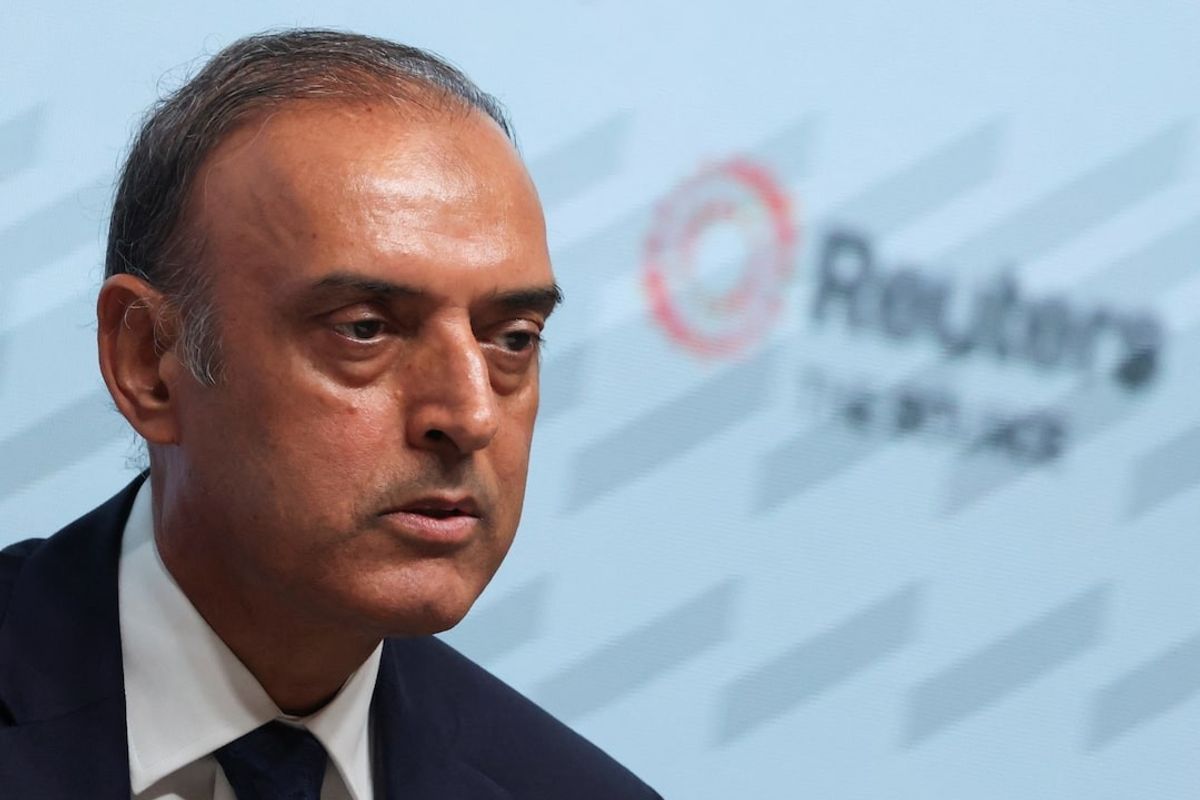Pakistan’s central bank head defends USD buyback from market
State Bank Governor says the purchases helped shore up reserves for loan repayments
Abdul Moiz

SBP Governor Jameel Ahmad says difficult policy and regulatory measures taken in recent years have stabilized the economy.
The head of Pakistan’s central bank has defended the decision to buy US dollars from the local market, saying that without those purchases, the government would have had to lend at high interest rates.
The State Bank of Pakistan has been buying the currency from the local market to strengthen foreign exchange reserves and meet its external debt obligations. The central bank usually purchases US dollars from the open market when earnings from exports and remittances are not enough to meet the country’s external obligations — loan payments or import costs.
Data shows that SBP purchased $7.7 billion from the currency market in fiscal year 2025, which ended in June. The dollar purchases contributed to an increase in foreign exchange reserves from $9.4 billion in June 2024 to $14.5 billion by the end of the quarter, despite ongoing debt repayments.
SBP Governor Jameel Ahmad the purchase from the open markets took reserves to “almost five times higher” than the level recorded in January 2023. He added that without this cushion, “the government would have needed to borrow significantly higher amounts – at higher interest rates – to make timely debt repayments”.
While the dollar buying spree might have shored up Pakistan’s reserves, it has created a shortage of dollars in the open markets. Business houses and traders have reported difficulties in securing payments for their orders, while travelers are also finding it hard to buy the currency for their trips.
Pakistan has already tightened rules for the purchase of US dollars, with the requirement of a valid passport and travel documents to buy the foreign currency.
Jameel, in his address to an event, also touched upon the country’s improving macroeconomic stability
He said the “difficult, yet necessary” policy and regulatory measures taken in recent years have stabilized the economy.
He highlighted that inflation has declined sharply and is projected to remain in the government’s target range of 5 to 7% over the medium term, even after the temporary upward pressure on prices due to the recent floods.
Governor Ahmad stated that SBP’s monetary policy and regulatory efforts have been complemented by sustained fiscal consolidation by the government, which has helped contain inflation and improve the external account.
He said economic growth is on the path to recovery and expected to accelerate further in the current fiscal year, notwithstanding the temporary expected losses from the recent floods, mainly to the agriculture sector.
Inclusive growth
While Governor Ahmad highlighted the recent economic success, he said sustaining this progress would require inclusive growth which “uplifts communities and secures prosperity for all”.
The governor added the SBP sees microfinance as a driver of inclusive growth.
He highlighted the central bank’s initiatives to support the microfinance sector, like the revision to the Prudential Regulations for Microfinance Banks and other reforms that removed restrictions on microenterprise lending, dedicated agriculture & livestock loan category, enhanced loan limits up to PKR 5 million for agriculture, microenterprise, and housing loans, and Rs500,000 for general loans.
The governor also shared that SBP has launched a Climate Risk Fund under the World Bank-funded Resilient and Accessible Microfinance Project aimed at supporting two million borrowers through liquidity facilities to mitigate the impact of climate shocks.
The SBP and the Government of Pakistan have launched a Risk Coverage Scheme for Small Farmers and Underserved Areas that offers 10 percent first-loss coverage and operational incentives to expand lending in primarily underserved regions like Balochistan, Khyber-Pakhtunkhwa, Azad Jammu & Kashmir, and Gilgit Baltistan.
The Governor also urged microfinance institutions to make their risk management practices more efficient, enforce internal audits, conduct staff training to prevent fraud, and maintain adequate liquidity buffers.
“Together, we can ensure that microfinance continues to play its vital role in fostering inclusive, resilient, and sustainable growth”, he said.










Comments
See what people are discussing